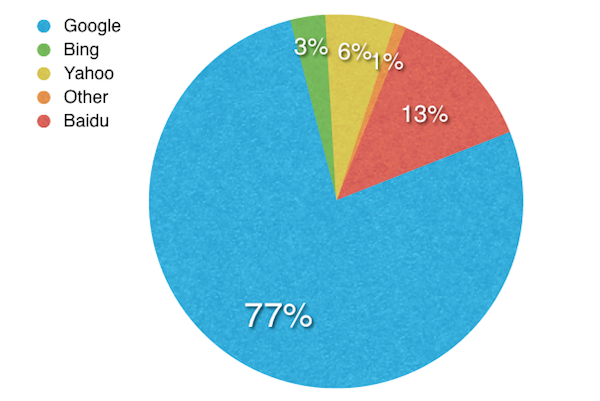July 4, 2014
News sites should be frightened by the power Google has over them

Google has restored links to stories on the Guardian’s website, but not the BBC’s, as it struggles with implementation of Europe’s “right to be forgotten” law.
Is this good news or bad? It’s hard to say because Google hasn’t given the reasoning behind its decisions.
“Their current approach appears to be an overly broad interpretation,” a spokeswoman for the Guardian said. “If the purpose of the judgment is not to enable censorship of publishers by the back door, then we’d encourage Google to be transparent about the criteria it is using to make these decisions, and how publishers can challenge them.”
I have a feeling that if Google were to be transparent, they’d be admitting to a process that resembles throwing darts while blindfolded. They’re just as confused as the rest of us.
It really is a tragedy that the news industry is so dependent on Google. Without links, without good search-engine ranking, news sites have little hope of surviving.
The way things have worked out on the Internet, the search function is owned almost entirely by one company. Here’s a point to ponder: why is search not simply a built-in protocol for the web? Email and file-transfers aren’t owned by anyone, so why is search?
Ironically, the only way to research a question like that is by doing a Google search — and even so you’ll find precious few answers.
Could news organizations get together and create a search engine of their own to compete with Google? Could we make a news-oriented search engine that would actually be better than Google?
I’d better watch out. Such musings could result in links to this post being forgotten . . .
Credit: Graphic showing global search engine market share from Relentless Technology.
